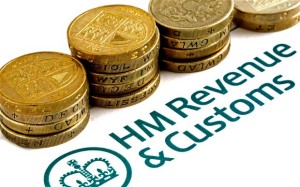The IMF world bank is proposing a ten per cent wealth tax on all households in the UK and the rest of the Eurozone.
What this would mean is men and women having to pay a levy on the total value of their accumulated assets, including their properties, cash, bank deposits, money funds, and savings in insurance and pension plans.
The amount payable would also depend upon whether they have any businesses, personal trusts, corporate funds, earnings, loans and mortgages.
All of these things are already taxed – so a wealth tax would represent an additional tax on the same assets. In other words, we would be taxed twice.
The IMF, under the leadership of Christine Lagarde says that imposing such a tax would help to correct the levels of debt in developed nations, including the UK and countries across the EU.
This idea is also being pushed by the EU. A paper published by the IMF, says: “Provided the households – or at least some of them – do not believe in the one-off nature of the wealth levy, the “non-believers” anticipate that the debt level can rise again by 20 pp and that fiscal policy would, then, subsequently ensure the reduction of this debt by imposing another wealth levy. The tax rate on wealth applied in this case is high enough such that the debt would be repaid at the expected value.”
The paper therefore recommends that in order for the tax to be effective, it should be introduced unexpectedly and promoted as a one-off tax only.
This is exactly what happened in Cyprus when people woke up to find they were unable to access their money from the banks.
A deal between the EU and euro partners subsequently resulted in every single man and woman paying a 10% ‘tax’ on their savings to bail out the banks.
The news came unexpectedly and was introduced as a ‘one-off’, in much the same way as the IMF is now recommending for other countries across the EU.
Another thing they did was at first the citizens of Cyprus were told they may lose all or most of their money. Everyone then breathed a sigh of relief when the tax turned out to be just ten per cent.
Now, this paper, suggests that perhaps that had been the plan all along. Of course, if people do not lose as much as they are first told they are going to, they are more likely to accept it. The oldest trick in the book – leak news of an even worse scenario, so people will accept whatever you already had in mind, more easily.
In Cyprus, it is important to remember the tax was a 10% tax on savings. A wealth tax would be infinitely greater – as it would also include a tax on your property and other assets.
However, let’s be very clear here. Despite the misleading statements made by other news outlets on this tax, this will NOT just be a tax on the rich. The IMF paper is very clear on that.
The tax will be on ALL households in the Eurozone. There is no discussion whatsoever of reforming the system. Rather than reforming an unsustainable fiat system that simply keeps printing more money with nothing to back it up, the IMF is advising government’s to introduce more taxes. This in itself is an admission that the previous taxes didn’t work.
When the income tax was first introduced, it was promoted as a one-off, with the usual suggestions that only the very wealthy would have to be concerned by it.
We all know how that turned out. What is worrying, is that this new tax is being introduced in the same way.
The IMF is also proposing that it is taken by force – in other words, you will not realise it is gone, until the money has been deducted from your account. The IMF paper claims this is necessary to prevent people from moving their money or their assets elsewhere.
Furthermore, the IMF also suggested expropriating pension funds. This means that, you can suddenly wake up and find your future is now applied as a contribution to government.
The trick is to get you, the ordinary man and woman, to pay attention to the multimillionaires so that you do not feel the political hand in your wallet.
In effect, this new tax would represent a government raid on the accumulated savings and assets of its citizens.
It means that everything you have worked so hard to gain, could be snatched away at the whim of the government.
The IMF also suggests that this “one-off” tax should be reintroduced at least once every 25 years to ensure the economy stays in good order.
The paper states: “The expected probability-weighted tax rate is calculated as follows. Households expect a wealth levy to be imposed if the debt ratio climbs again by 20 pp. The probability of this occurring is calculated in line with the theory on fiscal limits (see Corsetti et al, 2013). This amounts to an annual probability of 4%. Therefore, this event is expected
to occur around once every 25 years.”
You can find the IMF paper on this HERE.
Other IMF schemes
In June this year, the IMF came up with another scheme. If you bought a two-year bond, in which you are meant to receive all of the money you invested in that bond, plus the total interest payable, when it reaches maturity, here is what they will do: extend the maturity on that bond.
In other words, the two year bond, now becomes a 20 year bond. So you do not get your money for another 20 years.
This means you could buy a 30-day bond in the middle of a crisis and suddenly find under the IMF, that 30 day note is converted to 30 year bond at the same rate.
In other words, they have not ‘defaulted or neglected to pay you, they have simply moved the goal posts around, so you do not in practice, get your money. And you pay more taxes.
Akashic Times is the UK’s only online, fully independent not-for-profit newspaper that brings you real news from across the globe.
If you want to keep ahead of what is really going on in the world, subscribe to our newspaper via the subscribe button and join our Facebook & Twitter pages. Subscription is completely free ofcourse

















Pingback: Men A Proposal For Uk Pensioner Bonds | Pensioner Bonds
Pingback: Asunnon ostajat ja asunnon ottajat, osa 3/3 Ottajat | Pauli Vahtera | Blogit | Iltalehti.fi
Pingback: A year we’re going to regret? | thepoliticalprison
Pingback: UKIP Media Round Up - 30 December 2014 UKIP Mid Sussex